Mahfuz Anam writes: From Bangabandhu to Sheikh Hasina

Awam, an Urdu word, from which the Awami League's (AL) name came, means "the people." Throughout our days as a part of Pakistan, AL truly and most successfully represented the interests of the people. In every struggle of the Bangalees of East Pakistan – be it political, economic, social, or cultural – AL was at its forefront. Launched by Maulana Bhashani and stewarded by Huseyn Shaheed Suhrawardy, it was brought to its magnificent fruition and epitome of glory by Bangabandhu Sheikh Mujibur Rahman. AL always stood tall, and no other party came remotely close, when it came to representing the will of the Bangalees in the 50s and 60s of the last century.
Starting with the Language Movement in '52, to Jukta (United) Front election in '54, anti-Ayub movement from the late 50s onwards, the Education Movement in '62, Six-Point Movement in '66, and the students' 11-Point Movement in '69 – through it all, the AL emerged as the most authentic voice of the people, and finally manifested itself as the sole "spokesman" of the people of East Pakistan through its stunning and sweeping victory in the 1970 election. The party was unrivalled in popularity, stature, and moral authority never seen in the Indian subcontinent since the days of the Indian National Congress at the height of its anti-British struggle. From March 2 to 25 in 1971, when the genocide began, a single man – Sheikh Mujib – stood against a state – Pakistan – and emerged taller by the day as his authority grew and that of the state dwindled, epitomised by that poetry of a speech on March 7.
Awami League's crowning glory was its leading role during our independence struggle in 1971.
The party's post-liberation story is a mixed legacy. A shining example of its liberal orientation is the 1972 constitution – and BAKSAL the very opposite.
The party was dealt a brutal and existential blow on August 15, 1975, when its supreme leader along with his whole family, including his 10-year-old son – save his daughters, the present prime minister and her sister – was most savagely murdered. Three months later, AL's four other top leaders, including acting president and prime minister of the war-time Mujibnagar government in exile – were killed in jail, thus completely destroying the top echelon of AL leadership.
The killers concluded, as did the two army-led and nurtured governments – of Gen Ziaur Rahman and Gen HM Ershad – that the Awami League, the party that led the nation during the independence struggle, was, for all practical purposes, dead. Both these governments presided over a vicious smear campaign against the AL and Bangabandhu. For the following 15 years – August 1975 to December 1990 – the Father of the Nation was hardly ever mentioned or his murder referred to, except by a handful of members of the AL. (We take pride in the fact that The Daily Star was the first major newspaper to start the reversal of this process within months of its birth, by featuring prominently the events of August 15, 1975. The simple act of publishing a double column portrait of Bangabandhu with thick black bordering, symbolising grief, constituted a defiance that is unimaginable today.)
Among the most condemnable acts of the Zia government, though introduced by Mostaq as an ordinance, was the granting of indemnity to the murderers of Bangabandhu, his family, and of the four national leaders, making our constitution perhaps the only one in the world that gave legal protection to self-proclaimed killers.

Whatever its legacy may have been, the present-day Awami League, whose council sessions begin tomorrow (December 24), is the handiwork of Sheikh Hasina, and it is to her singular credit that she was able to revive, reorganise, re-stimulate and bring her party to where it is today – 14 continuous years in power (besides a previous five year-term), for the first time ever in our history. She has been at AL's helm for the last 41 years, since 1981 when she returned from forced exile in India, and it is definite, as the sun will rise in the morning, that she will continue to adorn that seat. Whatever tomorrow's council does and however many rituals we may see the party undergoing, it will not move a fraction of an inch from what the leader wishes.
Bangabandhu's Awami League led us in the creation of Bangladesh. Sheikh Hasina's Awami League led us in building it in the last 14 years. The achievements are monumental and unparalleled compared to those of any other government of the past.
However, a party leading a struggle and a party in power are two completely different entities.
The former represents a "dream," and the latter its practical implementation; the former's power emanates from its moral and ethical stance in pursuit of a just cause, while the latter basks in state authority propped up by its coercive machinery trapped in protocol and pomp. This transformation inevitably leads to a decay in values and principles, leading to compromise, corruption, and cronyism. Abuse of power, political partisanship and silencing of critical voices becomes the norm.
As there is no alternative narrative and none is permitted, in time the ruling party starts living in a "bubble" of self-congratulatory rhetoric, where they are the sole custodian of everything righteous, and the rest are devils incarnate. The distancing of the "power" and the "people" moves fast forward.
Hidden within the mountain of success are some fundamental features that are neither unheard of in history nor unique in the contemporary world, but nevertheless pregnant with the possibilities of devastating consequences.
Sheikh Hasina's biggest success, leadership, is perhaps also the root of a critical flaw, for it entails a complete concentration of power with no check and balance. It is so overwhelming, so all-encompassing, so effective, so hands-on (she is reputed to work for 14-16 hours a day), so powerful, so micromanaging that it has all but eclipsed and emasculated the party. The truth is, today's Awami League is totally personified by Sheikh Hasina. She is The Party, and the rest are hangers-on, waiting for her benevolence.
Is this a sign of strength or weakness? Only history can tell. But "history" will do so only if we are interested to learn from it.
The Awami League today is a party with no intellectual contestation of any sort from within. We never hear of any party platforms at any level – thana, district, or national – where policies on education, economy, culture, climate change or any other topic of national concern are being discussed, let alone debated on. There must be thousands of educationists, lawyers, and members of various other professions within the party. Do they have any input in the occasional policy formulation or day-to-day monitoring and evaluation of the party's performance in implementing policies? The only time we see some contest is in seeking nominations.
How effectively do we see the prime minister being served by her cabinet? It seems her cabinet colleagues are more apt in embarrassing her rather than in helping her, and their overall inefficiency – save a few – further adds to the PM's burden. During the pandemic, the government did a creditable job led by the PM with the help of bureaucrats; the less said about the concerned minister, the better. Even with disaster relief, which was always the prerogative of the local minister, MP or leader, the distribution has been done through the district administration.
Recently, while experts cried themselves hoarse about the state of the economy, especially that of the banking sector, the calming words came from the PM and not the finance minister, who said he was not aware of any problems and asked the public to give him in writing if they knew of anything. The foreign minister is also constantly being rescued by the PM for his incessant gaffes.
Whenever an AL leader is caught on the wrong side of the law – not because of the work of any monitoring body, but because carelessness or overconfidence gets the better of him or her – the party general secretary, Obaidul Quader, loses no time in saying "some infiltrators from BNP-Jamaat are maligning AL's image," leading to questions about the process of party membership and vetting. Funnily, usually no action is taken against such "infiltrators." On the contrary, a general amnesty was recently given to all such delinquents, bringing into question the party discipline and integrity.
An equally concerning issue is the increasing hold of the business community on the ruling party, and the consequent diminution of that of the politicians. Added to that is the rising influence of bureaucrats, further eroding the impact of those who constitute the traditional political class.
In 1973, 15 percent of the MPs were from the business community. It rose to 48 percent in 1996, 51 percent in 2001, 63 percent in 2008, and 59 percent in 2014. In the current parliament, 61 percent MPs are businesspersons, 13 percent are lawyers, 21 percent from other professions, and only five percent have any political background, according to Transparency International Bangladesh (TIB). This shift in influence is clearly discernible in the policy formulation, whose class nature has led to the highest ever rich-poor gap in our country's history. We want a parliament that represents all sections of society, not the domination of any one.
It is only in name that we have a parliamentary form of government. In practice, it is far closer to the presidential form, with the PM's secretariat being the centre of most decision-making. The principal secretary, cabinet secretary, finance secretary and some other secretaries, varying with time, play far more important roles than the cabinet itself, which mostly remains silent as ministers most often lack both the courage and the expertise to express their views. A highly select group of advisers wield far greater power than most ministers.
It is against this backdrop that the ruling Awami League will hold its 22nd triennial national council. Though we headlined a report on Wednesday with "Number two is the number one question," the reality appears that number two is also not a question anymore. Barring some last-minute change by the party chief, the outcome will mostly be to maintain the status quo, filled with old faces in déjà vu positions.
As the council has been shortened to a one-day affair, in which the PM's speech will certainly feature most prominently, the time for a meaningful hearing of grassroots voices can easily be ruled out. All in all, the meeting of the highest policy-making body of the biggest party in the country that has ruled us for the longest unbroken period in our history is unlikely to generate any excitement.
Whatever happens tomorrow, it has to come from Sheikh Hasina. Nobody and nothing else is of any consequence.
Post-script
In this piece, I have tried to bring to the fore some things that those in her vicinity will never do and which her genuine party stalwarts are too far at a distance to be able to.
Mahfuz Anam is the editor and publisher of The Daily Star.

 For all latest news, follow The Daily Star's Google News channel.
For all latest news, follow The Daily Star's Google News channel. 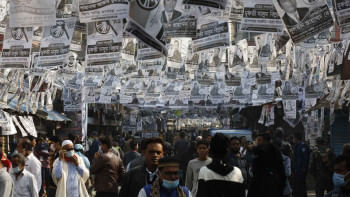

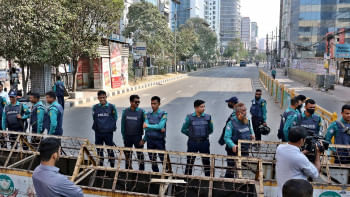
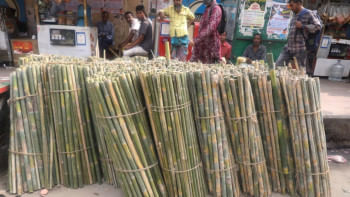
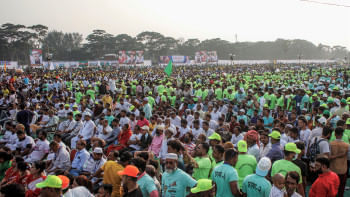




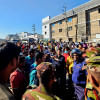
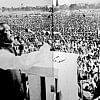
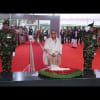

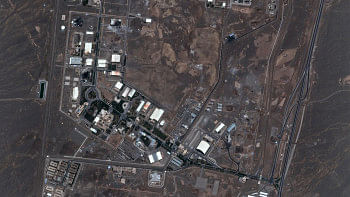
Comments